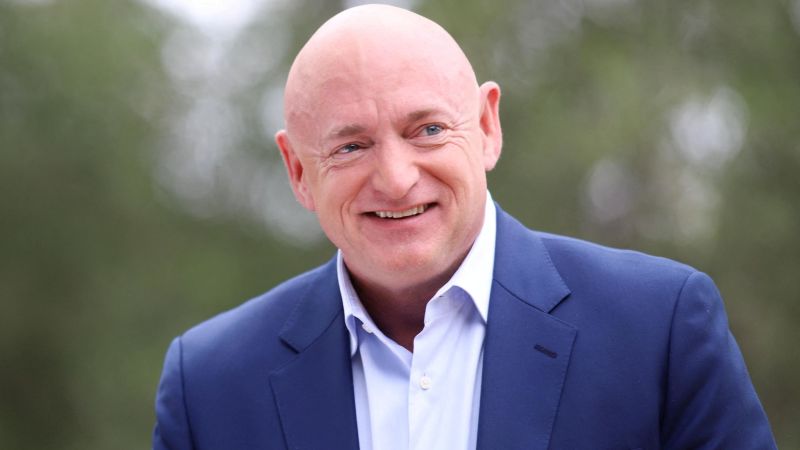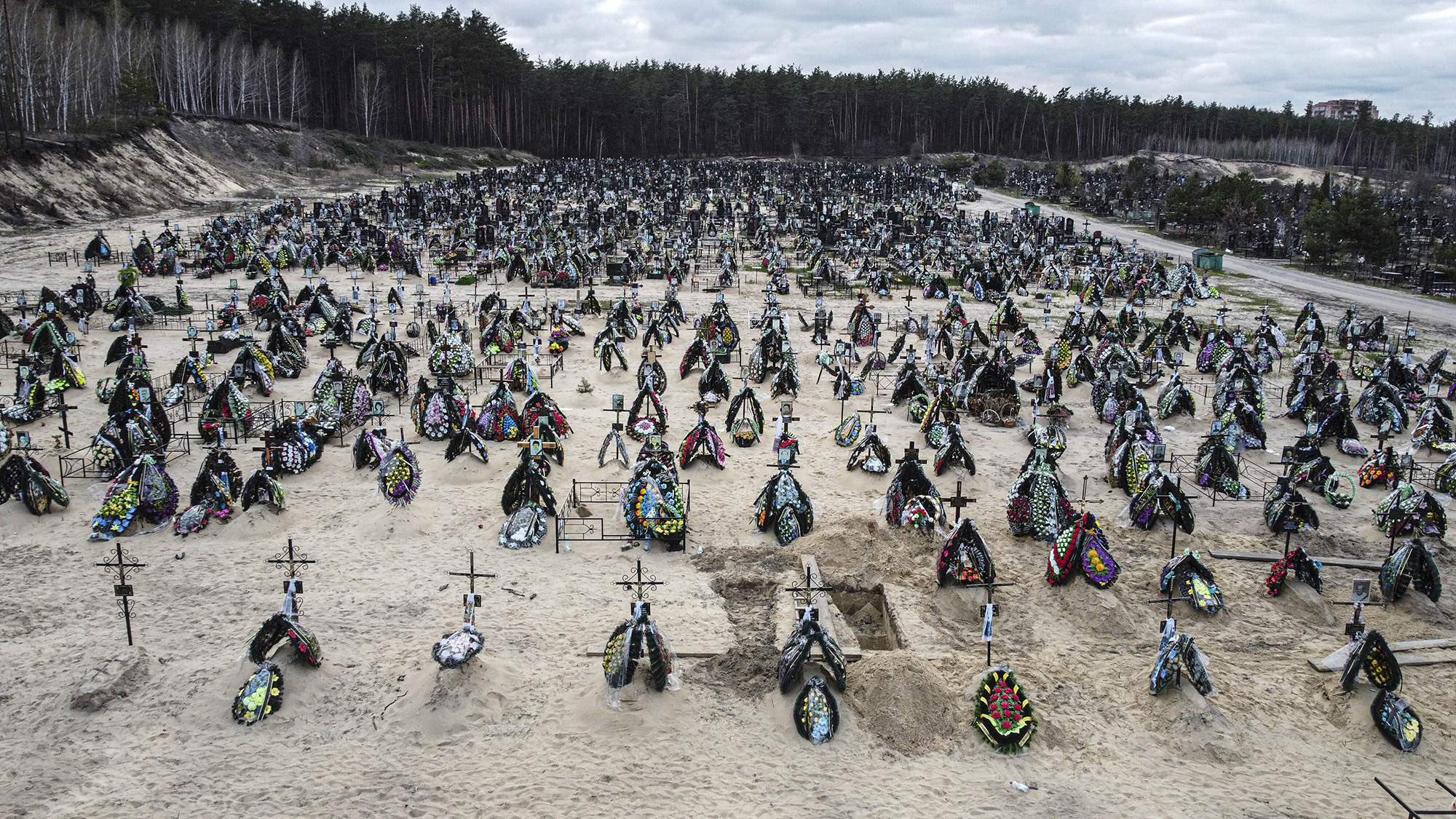
CNN
—
With Arizona Sen. Mark Kelly’s victory on Friday night, Democrats are just one seat away from keeping control of the US Senate as all eyes turn to neighboring Nevada, where the competitive Senate race is increasingly trending in Democrats’ direction.
The win by Kelly, who was elected in 2020 to fill the term of the late GOP Sen. John McCain, capped a string of victories for Democrats on Friday night as ballots continued to be painstakingly tallied in the West. Kelly’s defeat of venture capitalist Blake Masters, who had echoed former President Donald Trump’s lies about the 2020 election, marked yet another rejection by voters of a Trump-backed candidate who Democrats portrayed as an extremist.
So far, Democrats will hold 49 seats in the Senate and Republicans will hold 49 – meaning Democrats only need one more seat to clinch the majority in the Senate (with Vice President Kamala Harris casting the tie breaking vote). They could reach that critical 50-seat threshold if they are successful in Nevada, where Democratic Sen. Catherine Cortez Masto is closing in on Republican Adam Laxalt, the state’s former attorney general – who called the 2020 presidential election “rigged” and filed lawsuits on Trump’s behalf trying to overturn Biden’s 2020 victory in the Silver State.
The Nevada Senate race has been deadlocked for months, but it could ultimately determine the balance of power in the upper chamber. Democrats are also defending a seat in Georgia, where Democratic Sen. Raphael Warnock and Republican Herschel Walker are headed to a December 6 runoff, CNN projects.
Control of the US House still hangs in the balance. But it is clear that even if Republicans win a majority, it will be by a far more slender margin than GOP leaders had hoped. That unexpected outcome has already produced recriminations and second-guessing of Republican leaders, including House Minority Leader Kevin McCarthy, who had hoped to be emerging from these contests with a clear mandate to become the next House majority leader.
The string of Democratic wins Friday night marked a stunning reversal of fortune for a party that had appeared to be in serious trouble heading into Tuesday’s elections. Candidates like Kelly and Cortez Masto were laboring under President Joe Biden’s low approval ratings, an unfavorable economic climate – with inflation and high gas prices pinching the budgets of families all across the country – and facing historical trends that tend to lead to steep losses in the first midterm cycle of a new president.
But this has been a complex cycle with many different crosscurrents affecting voter behavior, including the Supreme Court’s decision in June overturning abortion rights that angered many voters across the country. Republicans were also hamstrung by Trump’s decision to boost far-right candidates who were loyal to him, but often too extreme to appeal to the swing voters who decide elections. In the end, many independent voters and moderates appear to have rejected candidates they viewed as too extreme or too closely aligned with Trump – and Democrats turned out in droves to protect their incumbent candidates.
Masters’ defeat in Arizona came after prominent Democrats, including former President Barack Obama, swooped into the state in the final days of the election, warning that the very fate of the nation’s democracy was on the ballot. Voters in the Grand Canyon State also spurned the bid of GOP state Rep. Mark Finchem, a strident election denier backed by Trump, to become Arizona’s top elections official. Instead, they will elect Democrat Adrian Fontes as Arizona’s next secretary of state, CNN projected Friday night.
The one bright spot for Republicans was in Nevada, where voters elected Republican Joe Lombardo as the state’s next governor – tossing out Democrat Steve Sisolak, CNN projected. Lombardo, the popular Clark County sheriff, had reminded voters of their struggles during the Covid-19 pandemic, when unemployment in Nevada had peaked at nearly 30%. Though the economy has rebounded, Lombardo had argued that Sisolak’s policies had been too restrictive and had hampered the state’s economic recovery.
In an echo of 2020, some Republicans, including Masters, are already trying to stoke controversy about the counting of ballots in Maricopa County, Arizona – suggesting that that the count was unreliable there because of the handling of certain ballots. Both Masters and GOP gubernatorial nominee Kari Lake have suggested that the count has been moving too slowly.
On Friday, Masters made a similar argument to Lake, calling the counting process in Maricopa County – the largest county in Arizona and home to Phoenix – “incompetent,” pointing to a problem with printers that led to some ballots not being properly tabulated on Tuesday, even though election officials said that issue was remedied within hours on Election Day.
Masters also accused the county of mixing up uncounted ballots with ballots that had already been counted. The Republican National Committee and Republican Party of Arizona released a statement saying that the election “has exposed deep flaws in Maricopa County’s election administration. Arizona deserves better – transparency, certainty, efficiency – and most importantly, an accurate and prompt announcement of election results that can be accepted by all voters.”
A spokeswoman with the Maricopa County Elections Department told CNN’s Kyung Lah the county office has “redundancies in place that help us ensure each legal ballot is only counted once.”
“Because ballots are tabulated by batch, we are able to isolate the results from those specific locations and reconcile the total ballots against check-ins to ensure it matches. This is done with political party observers present and is a practice that has been in place for decades,” the spokesperson said.
Bill Gates, the chair of the Maricopa County Board of Supervisors, rejected Masters’ suggestion that the county should wipe the slate clean and start counting over again, stating that “is simply not allowed for under Arizona law.” Gates said the county’s pace for counting ballots is in line with previous years.
When asked on CNN about specific accusations from the Republican National Committee, Gates said he would prefer that they communicate those concerns to him directly. “I’m a Republican. Three of my colleagues on the board are Republicans. Raise these issues with us and discuss them with us, as opposed to making these baseless claims,” he said.
“Let the count continue on and at the end, if they have issues they choose to take to court, they have every right to do that, and we’ll let that process play through,” Gates added.
Kelly entered the 2022 cycle well positioned to withstand the headwinds facing Democrats – even in a purple state like Arizona that Joe Biden narrowly won – because of his formidable fundraising and unique personal brand as a retired astronaut, a Navy veteran and the husband of former Rep. Gabby Giffords.
Masters, a first-time candidate, was able to navigate the GOP primary gauntlet with significant financial backing from conservative tech billionaire Peter Thiel, his former boss. He appealed to Republicans by promising to prioritize immigration issues, and in a campaign video released last year, he said he believed Trump won the 2020 presidential election.
Masters then appeared to modulate his tone about the 2020 election results as well as the conservative stances he had sought out during the primary on abortion – in what initially seemed like an effort to appeal to broader swath of the Arizona electorate. (Though Republicans comprise a plurality in Arizona, independents make up about a third of the electorate and often sway close elections.)
After his primary victory in August, Masters scrubbed his website of language that included the false claim that the election was stolen. Under questioning from the moderator during a debate with Kelly, Masters conceded that he had not seen evidence of fraud in the 2020 vote counting or election results in a way that would have changed the outcome. In that debate and on the trail, Kelly had argued that the “wheels” could “come off our democracy” if election deniers like Masters were elected.
But Masters seemed to reverse course after receiving a phone call from Trump urging him to “go stronger” on election denialism, a conversation that was captured in a Fox documentary. In the final week of the campaign, Masters told CNN’s Lah he didn’t believe moderates were bothered by his comments about the 2020 election, insisting that voters were far more focused on their concerns about inflation, crime and the border.
Throughout the campaign, Kelly portrayed Masters as a candidate who was outside the mainstream, who would jeopardize abortion rights, as well as Social Security and Medicare. In a state where lawmakers passed a new ban on abortion at 15 weeks earlier this year – and where there are legal efforts underway to ban abortion in almost all cases – Kelly’s campaign kept a relentless focus on Masters’ anti-abortion stances.
Masters had said he would support a national ban on abortion after 15 weeks, a proposal that was advanced by South Carolina Republican Sen. Lindsey Graham. That bill includes exceptions for rape, incest and to protect the life of the mother.
Note:- (Not all news on the site expresses the point of view of the site, but we transmit this news automatically and translate it through programmatic technology on the site and not from a human editor. The content is auto-generated from a syndicated feed.))




I’m not that much of a online reader to be honest but your sites really nice, keep it
up! I’ll go ahead and bookmark your site to come back later on. All the best
It’s very effortless to find out any topic on web as compared to textbooks, as
I found this post at this web page.